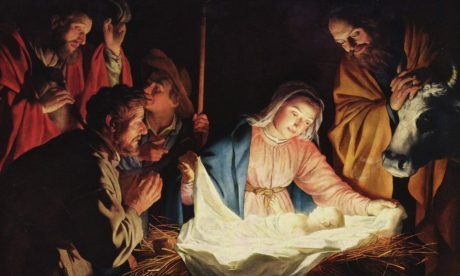Christmas. People roll their eyes.
The pace in an already over-stimulated society quickens. Everyone is trying to get their jobs, their gigs, their projects, finished by Christmas.
Many people bemoan the approach of this festival, complain about its commercialization, wonder why it is still observed in a multicultural, multi-faith country like Australia.
But most people eventually succumb to it, obediently flocking to family hearths on Christmas day. A feast takes place; presents are exchanged.
Children, especially, are honoured with gifts.
Why? Why does Christmas alone retain such a hold on us, while the significance of other festivals in the Christian calendar, such as Easter, has waned so dramatically?
The reason may be that the significance of Christmas is indeed both primal and universal. A child is born.
A unique child, yes, but unique ultimately only in a mythic sense, the sense in which every child is uniquely at the centre of the existential drama.
Christmas remembers and celebrates the primal fact of birth: every human is a born being, and born moreover into a family.
So, once a year, we are pulled by the seemingly irresistible force of Christmas back to our point of origin: family.
Even putting aside the Christian trappings however, one might still object to such a yearly rite of origins on the grounds that it is unfair to those who have “no family.” But nobody has no family.
Each of us has a biological mother and father who together tie us into a great tapestry of ancestors, all of whom would care for us if they could. Caring for the child is the innate pattern and purpose of family.
Family is moreover a gift economy: incalculable gifts of love and care are freely bestowed, on the understanding, only, that they will be passed on.
At Christmas we ritualize, with our Christmas presents, the endless chain of gift-giving that sustains the great trans-generational unfolding of family.
Whether the family hearth to which we return on Christmas day is actual or merely symbolic, by returning to it we acknowledge the fact that each of us belongs inalienably and equally to a vast familial story, a story that ramifies out into the wider story of humanity.
Christmas is about belonging, inalienable belonging, the belonging that is literally our birthright. Continue reading
Sources
- ABC Religion & Ethics article by Freya Mathews, Adjunct Professor of Environmental Philosophy at Latrobe University.
- Image: Crossroads Initiative
News category: Features.




